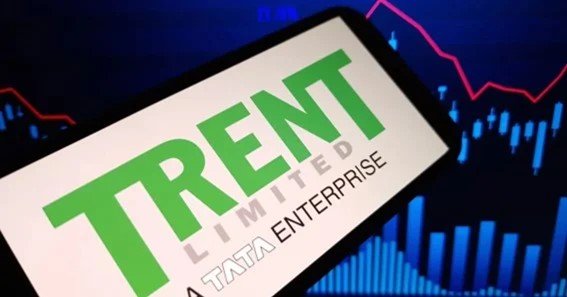The Indian government recently announced its decision to sell a 10% stake in Indian Renewable Energy Development Agency (IREDA). As the market buzzes with this news, many investors are wondering if this is the right time to buy IREDA shares. In this blog, we will delve into the potential impacts of the government’s stake sale, analyze IREDA’s financials, and provide insights into whether investing in IREDA now could yield profitable returns.
Overview of IREDA
IREDA, a Mini-Ratna (Category – I) Government of India Enterprise, plays a crucial role in financing renewable energy projects across India. Established in 1987, it has been instrumental in supporting India’s green energy goals, providing financial assistance to a variety of renewable energy projects, including wind, solar, small hydro, and bioenergy. With the growing emphasis on sustainable energy, IREDA’s relevance in India’s energy ecosystem is undeniable.
Why is the Government Selling 10% of IREDA?
The government’s decision to sell a 10% stake in IREDA is part of its broader disinvestment strategy, aiming to raise funds while also promoting wider public ownership of state-run enterprises. This move is expected to bring in fresh capital, which could be used to fuel IREDA’s growth plans, including expanding its portfolio and increasing its lending capacity for renewable energy projects.
Financial Health of IREDA
Before deciding whether to buy IREDA shares, it is crucial to look at the company’s financial performance:
- Revenue Growth: IREDA has shown consistent revenue growth over the past few years, largely driven by the increasing demand for renewable energy financing. In the last financial year, IREDA reported a revenue increase of over 15% year-on-year.
- Profitability: The company’s net profit margins have remained stable, with a recent report indicating a net profit of approximately INR 600 crore. This reflects IREDA’s ability to manage costs while expanding its lending portfolio.
- Asset Quality: Non-performing assets (NPAs) are a significant concern for financial institutions. However, IREDA has maintained a low NPA ratio, reflecting its prudent lending practices and strong project evaluation criteria.
- Capital Adequacy: IREDA’s capital adequacy ratio (CAR) stands well above the regulatory requirement, indicating that the company is well-capitalized to absorb potential losses and continue its growth trajectory.
Potential Impact of the Government’s Stake Sale
The government’s sale of a 10% stake in IREDA is expected to have several implications:
- Share Price Volatility: The announcement of a stake sale can lead to short-term volatility in IREDA’s share price. Investors should be prepared for potential fluctuations as market participants react to the news.
- Increased Liquidity: The sale will likely increase the liquidity of IREDA shares, making it easier for investors to buy and sell the stock. This could attract more retail and institutional investors, potentially driving up the share price over time.
- Long-Term Growth: The fresh capital from the stake sale could enable IREDA to expand its lending operations, thereby supporting the company’s long-term growth. This expansion could enhance the company’s profitability and, in turn, benefit shareholders.
Risks to Consider
While IREDA presents an attractive investment opportunity, there are risks that potential investors should consider:
- Market Risk: The renewable energy sector, while growing, is subject to regulatory changes, policy shifts, and technological advancements. Any negative developments could impact IREDA’s business.
- Interest Rate Risk: As a financial institution, IREDA is sensitive to changes in interest rates. An increase in interest rates could affect the demand for loans and the company’s profitability.
- Disinvestment Uncertainty: The market’s reaction to the stake sale could be unpredictable, and there might be short-term pressure on the stock price. Investors need to assess whether they are comfortable with this uncertainty.
Should You Buy IREDA Shares Now?
Given the growth prospects in the renewable energy sector and IREDA’s solid financial performance, investing in IREDA could be a lucrative long-term play. However, it is essential to factor in the potential risks, including market volatility due to the upcoming stake sale.
Investors with a higher risk appetite and a long-term investment horizon may find this an opportune time to buy IREDA shares. For those more cautious, waiting for post-stake sale stability might be a safer approach. As always, it is recommended to conduct thorough research or consult with a financial advisor before making any investment decisions.
Conclusion
The government’s 10% stake sale in IREDA presents a unique opportunity for investors looking to tap into India’s renewable energy growth story. With strong financials and a pivotal role in India’s energy transition, IREDA shares could be a valuable addition to your portfolio. However, potential investors should weigh the benefits against the associated risks before making a decision.
FAQ
What is IREDA, and why is it significant?
IREDA is a government-owned financial institution that finances renewable energy projects in India, playing a key role in the country’s transition to sustainable energy.
Why is the government selling a 10% stake in IREDA?
The government’s stake sale is part of its disinvestment strategy to raise funds and promote broader public ownership of state-run enterprises.
How could the stake sale impact IREDA’s share price?
The stake sale could lead to short-term volatility in IREDA’s share price, but it may also increase liquidity and attract more investors, potentially driving up the share price in the long term.
Is IREDA a profitable company?
Yes, IREDA has demonstrated stable profitability, with consistent revenue growth and a strong financial position.
Should I buy IREDA shares now?
If you have a long-term investment horizon and are comfortable with potential short-term volatility, buying IREDA shares could be a good opportunity. However, it is important to consider the risks and conduct thorough research.
Disclaimer: This article is for informational purposes only and should not be taken as financial advice. Always consult a financial advisor for investment decisions.










